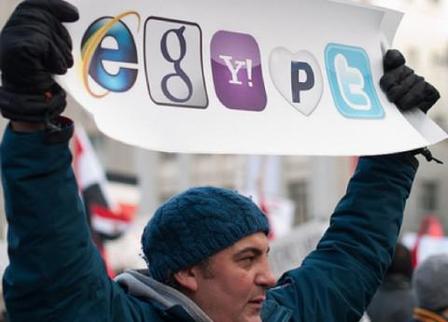5th February 2013 Kuala Lumpur, Malaysia
Digitalising Diplomacy in Malaysia
What does a Diplomat do? My friends and family often ask me this question, and it’s not so easy to answer. The Oxford English Dictionary describes diplomacy as “…the profession, activity, or skill of managing international relations” and a Diplomat as someone who “…typically represents a country abroad“.
But, of course it’s a lot more subtle than that. It’s about building relationships and understanding cultures; it’s about gathering information and influencing decision makers; and it’s about promoting our national interests and keeping our people safe.
In Uganda, this meant developing and nurturing relationships with individuals from a relatively small pool of government officials, media contacts and NGO workers. Accessing the views of ordinarily people was far more challenging. It was almost impossible to understand what an individual in one of the Internally Displaced Persons camps thought of the peace process without making a dangerous journey of over six hours to the northern reaches of the country. Few diplomats managed to do it.
You could argue that this was one of the reasons why it took the world so long to realise how bad the situation was in that part of Africa.
But, as anyone with access to the Internet will tell you, the game has changed. Anyone anywhere can find out about an incident in any part of the world through a Google search, a You Tube video, or an update on Wikipedia. Invisible Children’s Kony 2012 You Tube video received over 96 million hits. Imagine how difficult it would have been to disseminate this story to 96 million people using a phone, fax or even a newspaper.
And if we ever needed proof of the power of social media, we only have to look back to the Arab Spring of 2011 when these digital tools were used to topple authoritarian regimes across north Africa. As one activist in Cairo succinctly put it: ‘we use Facebook to schedule the protests, Twitter to coordinate, and YouTube to tell the world”.
Just as the media has had to adapt and embrace ‘citizen journalism’, diplomats also have to evolve as well. This means that we have to work even harder to uncover the truth about an issue and to develop those relationships which will genuinely make a difference. There will never be a replacement for the confidential one to one interactions with people and we will struggle to provide high quality consular support to distressed nationals through a Skype link but the digital revolution presents incredible opportunities.
As our Ambassador Tom Fletcher in Lebanon said recently, ‘…we need to stop having the debate as to whether or not to be part of the digital revolution. That is like a 19th century farmer debating whether or not to be part of the industrial revolution. This is happening all around us, with or without diplomats. No-one controls this space. It presents threats as well as opportunities. But so did the printing press, the telephone, air travel.’
The Foreign Office has set itself the challenging objective of being one the world’s leading users of digital media to enhance foreign policy. In December 2012, we launched our digital strategy with a commitment to using digital tools in every aspect of our work. Have a look at some examples of where it is already having an impact.
The argument for engaging with a digital audience could not be stronger than in Malaysia. Nearly 90% of all Malaysians are online and 48% of the population has a Facebook account – the highest by some distance in south east Asia.
Moreover, many Malaysians complain to me that they have difficulty accessing balanced news coverage given Government control over much of the local print and TV media. This might help to explain Malaysia’s latest ranking of 145 out of 179 countries in the World Press Freedom Index. As a result, they rely on the internet and more informal channels for information and analysis.
So what is the High Commission doing to engage this audience?
We have made a big push on our existing social media channels – more unique footage of our Facebook page; more updates on our website; and more interesting tweets on our Twitter feed. You may also have seen some of our recent You Tube videos on the Royal Visit last September and on our Chevening Scholarships.
However, we know we need to do more.
That’s why I’m really pleased to tell you that the High Commissioner, Simon Featherstone, has launched his own Twitter account, @HCSFeatherstone. You will be able to hear about his life as the High Commissioner in Malaysia and you will be able to quiz him on any aspect of British foreign policy. I know he’s really looking forward to engaging with you. You can even ask him about his golf handicap!
Before I end this blog, I wanted to leave you with one last thought. Most diplomats choose this career path because we want to make a difference in the countries where we are posted and to create opportunities for people back home. But we can only do this if people are willing to engage with us. The internet has given us an ideal medium to hear your messages but it’s what you and we say that really matters.
